There’s still a big budget shortfall in Pennsylvania and state Rep. Mike Sturla thinks he has at least part of the answer: slot routes. Casinos can be expected to decry this proposed solution and some 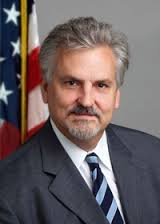 already are. But for Sturla it’s at least partly a matter of ratifying the status quo — 40,000 black-market slot machines — and taxing the heck out of it: 33% for the state and another 5%-10% for municipalities. Regulators are going to be kept busy separating the legal wheat from the illicit chaff but Pennsylvania’s budgetary woes are so great that Sturla’s proposal — expected to raise $300 million — may be too seductive to resist.
already are. But for Sturla it’s at least partly a matter of ratifying the status quo — 40,000 black-market slot machines — and taxing the heck out of it: 33% for the state and another 5%-10% for municipalities. Regulators are going to be kept busy separating the legal wheat from the illicit chaff but Pennsylvania’s budgetary woes are so great that Sturla’s proposal — expected to raise $300 million — may be too seductive to resist.
One company that would tractable to branching out from casinos to slot routes is Penn National Gaming. Spokesman Eric Schippers says the company would “look at it opportunistically to see whether we can get gaming out of this. Frankly, there has been a lot of discussion around VGTs, so we’ve been working potential models that would work for us—protect our investment and allow some upside.” Slot routes would be restricted to establishments that serve liquor (three machines apiece) but that still leaves approximately 12,000 opportunities. It would also allow companies like Golden Entertainment, which missed out on the casino-expansion era in Pennsylvania, to get a second bite of the apple,
Casino consultant Frank Fantini tells Global Gaming Business that “in many cases the VGTs would be replacing gray machines, so the 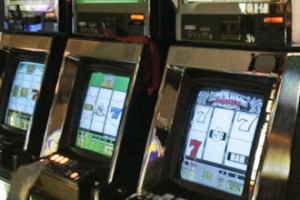 case for cannibalization would not be as clear. In addition, casinos offer a whole different experience and attraction than a social club, veterans hall or neighborhood bar.” Considering that Fantini likens the effect to adding 15 or 20 casinos to the market, the gaming establishment has good cause to look upon the Sturla bill with alarm.
case for cannibalization would not be as clear. In addition, casinos offer a whole different experience and attraction than a social club, veterans hall or neighborhood bar.” Considering that Fantini likens the effect to adding 15 or 20 casinos to the market, the gaming establishment has good cause to look upon the Sturla bill with alarm.
In Illinois, the industry seems to have decided it is better to switch than fight. Penn has already purchased several slot routes and Delaware North, owner of Jumer’s Casino in Rock Island, is following suit. Tom Swoik, president of the Illinois Gaming Association, sounded a note of resignation, telling GGB, “I believe it is in our best interests to continue promoting our casinos as entertainment venues, not just a place to gamble. We have four- and five-star restaurants, hotels, bands, concerts and staff trained to make your casino experience wonderful.”
Even the fact that slot routes are illegal in Chicago hasn’t kept them from being major contributors to the state budget, to the tune of $332 million. That’s somewhat blunted the annual push to legalize more casinos. It’s also causing pro-slot-route rumbles to be heard in adjoining Midwestern states. All told, it seems they’re coming. It’s just a matter of when.
* Color us surprised. It didn’t take long for Carl Icahn to find a 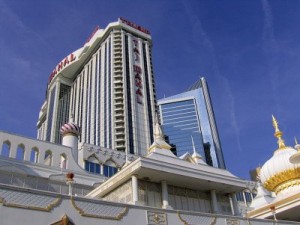 taker for Trump Taj Mahal. After sniffing around the Atlantic City market for years, Hard Rock International swooped, buying the defunct resort for an undisclosed price (leading us to suspect that Icahn didn’t get however much he wanted, though he said he’d settle for $150 million). Whatever the case, Hard Rock came out of the deal with plenty of money left over. In contrast to Icahn’s relatively tepid capital commitments to the Taj, Hard Rock CEO James Allen promised to spend $300 million bringing it into the 21st century.
taker for Trump Taj Mahal. After sniffing around the Atlantic City market for years, Hard Rock International swooped, buying the defunct resort for an undisclosed price (leading us to suspect that Icahn didn’t get however much he wanted, though he said he’d settle for $150 million). Whatever the case, Hard Rock came out of the deal with plenty of money left over. In contrast to Icahn’s relatively tepid capital commitments to the Taj, Hard Rock CEO James Allen promised to spend $300 million bringing it into the 21st century.
Icahn said he was “extremely happy with our ownership of the Tropicana Casino & Resort, and after considerable analysis and deliberation we determined that we only wanted to own one operating casino property in Atlantic City.” As for Hard Rock, it had been bruited as a potential casino operator for Revel/Ten but clearly preferred being an owner to a tenant.
* West Virginia has joined the growing chorus of states calling for legalized sports betting. The move has gone almost unnoticed by local news outlets but the American Gaming Association was 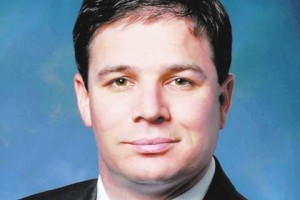 quick to pounce and proclaim the news to all who would listen. The bill says, right up front, “federal law prohibiting sports betting in West Virginia is unconstitutional” and calls for “allowing incorporation of current laws and the promulgation of further requirements for sports betting by legislative rule.” Sports betting would be taxed at 2%. In short, the bill would legalize the activity by classifying it as a form of lottery. If I didn’t know better, I’d swear Geoff Freeman wrote the bill himself, especially when it talks about the need “to protect the public and ensure the integrity of not only professional and amateur sports but West Virginia’s current licensed gaming industry.”
quick to pounce and proclaim the news to all who would listen. The bill says, right up front, “federal law prohibiting sports betting in West Virginia is unconstitutional” and calls for “allowing incorporation of current laws and the promulgation of further requirements for sports betting by legislative rule.” Sports betting would be taxed at 2%. In short, the bill would legalize the activity by classifying it as a form of lottery. If I didn’t know better, I’d swear Geoff Freeman wrote the bill himself, especially when it talks about the need “to protect the public and ensure the integrity of not only professional and amateur sports but West Virginia’s current licensed gaming industry.”
* Let’s hope the International Union, Security, Police & Fire Professionals of America didn’t take too big of a victory lap after 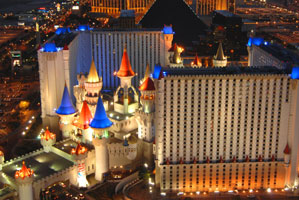 unionizing casino guards at Sands Bethlehem. Its pitch to Excalibur employees was swatted away like a hanging curveball, crushed by 80% of the voters. It has to come as a rude surprise to the union, which had succeeded at Mandalay Bay at a two-to-one margin. Score one for MGM Resorts International and its persuasion tactics.
unionizing casino guards at Sands Bethlehem. Its pitch to Excalibur employees was swatted away like a hanging curveball, crushed by 80% of the voters. It has to come as a rude surprise to the union, which had succeeded at Mandalay Bay at a two-to-one margin. Score one for MGM Resorts International and its persuasion tactics.
* Just yesterday, I was wondering what Harry Reid was up to these days. Today we have the answer and it falls under the heading “odd couples.” We wish Old Sixty Votes and Mr. Boehner success in their new venture.
* It’s “a casino arms race” in Connecticut. Veteran correspondent Dave Palermo has the definitive story to date.

